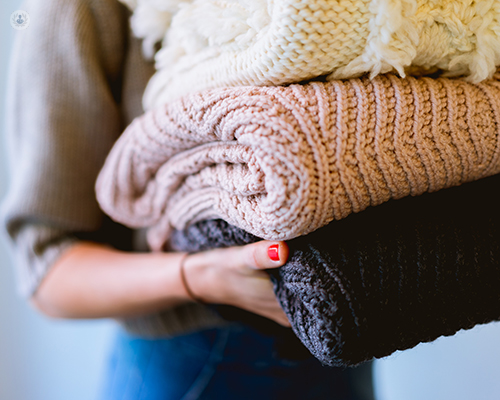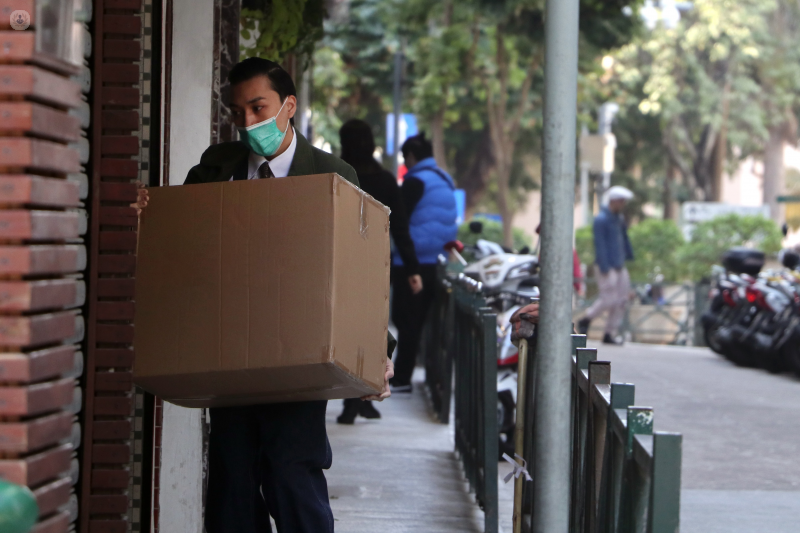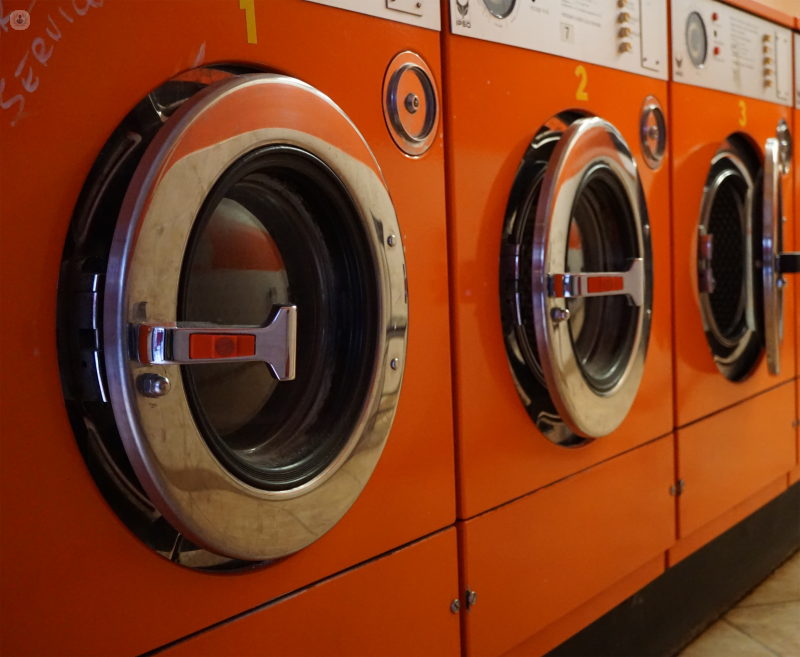How should I wash my clothes during the COVID-19 pandemic?
Written in association with:In light of the ongoing COVID-19 pandemic, the importance of social distancing and hand washing has been reiterated many times by the World Health Organization, the UK government and other countries across the globe.
We recently covered how long the virus can survive for a certain amount of time on different surfaces. However, many of you have been wondering what the risk might be of catching coronavirus from a contaminated item of clothing, so we looked into this for you.

How long can coronavirus last on clothing?
“So far, evidence suggests that it’s harder to catch the virus from a soft surface (such as fabric) than it is from frequently touched hard surfaces like elevator buttons or door handles” according to a senior director of infection prevention at the Johns Hopkins Health System.
Most of what is known about how long this novel coronavirus lives on surfaces comes from a significant study published in The New England Journal of Medicine in March. The study found that the virus can survive, under ideal conditions, up to 24 hours on cardboard.

The study did not look at fabric. However, most virus experts believe that the way the cardboard reacted offers clues about how the virus most likely behaves on fabric. The absorbent, natural fibres in the cardboard appeared to cause the virus to dry up more quickly than it does on hard surfaces. The fibres in natural fabric would be likely to produce a similar effect.
A 2005 study of the virus that causes SARS for example, another type of coronavirus, provided evidence that gives some insight into what may be the case with COVID-19. Researchers tested increasingly large amounts of viral samples on a cotton gown and paper. Depending on the concentration of the virus, it took five minutes, three hours or 24 hours for it to become inactive. “Even with a relatively high virus load in the droplet, rapid loss of infectivity was observed for paper and cotton material,” as concluded by researchers.
Should I change my clothes and shower when I get home from the supermarket?
Research shows that some small viral particles could float in the air for about half an hour, but they don’t swarm close together like gnats and are therefore unlikely to collide with your clothes.
An aerosol scientist at Virginia Tech, Dr Linsey Marr, highlighted that “A droplet that is small enough to float in air for a while also is unlikely to deposit on clothing because of aerodynamics” she also mentioned that “the droplets are small enough that they’ll move in the air around your body and clothing.”
Do particles not land on our clothes? Shouldn’t I be disinfecting them?
According to Dr Linsey Marr, “as we move, we push air out of the way, and most of the droplets and particles get pushed out of the way, too.” So if someone sneezes on you, you will probably want to go home, shower and change. However, if this does not occur, know that a slow-moving body will usually push air and viral particles away from you, a result of simple physics.
Should I worry about sorting clothes when doing laundry and is it possible to send viral particles loose from clothing, spreading them into the air?
Routine laundry should not cause worry. You should wash clothes like you normally would. Some viruses, like the norovirus, can be tough to clean. COVID-19 however, is surrounded by a fatty membrane that is vulnerable to soap.
Washing your clothes in regular laundry detergent and following fabric-care instructions on the label is more than enough to remove the virus if it happens to be on your clothes.
However, the exception is if you are in close contact with a sick person. The Centers for Disease Control and Prevention in the US recommends that you wear gloves when cleaning up after someone who is sick and take care not to shake bedding and laundry.
In the case where you are washing clothes of someone who may have COVID-19, you should use the warmest water setting possible and allow it to dry completely. According to Dr Linsey Marr, it is ok to mix laundry from an ill person with the rest of the household load. Leaving laundry to sit out for a while also reduces risk of contamination, because it is likely the virus will dry out and decay.
Doing laundry at a launderette
Not everyone has a washing machine in their home. However, those who use laundry facilities can still follow the guidelines that we have listed above.
In addition, consider the following precautions when doing laundry in a public place:
- Maintain a 2-metre distance from other people.
- Wear disposable gloves and avoid touching the face.
- Disinfect the surfaces of the washer and dryer.
- Fold the laundry at home.
- Before folding clothes, ensure you have washed your hands.
- Disinfect the laundry basket or consider using disposable laundry bags.

In conclusion, there is no definitive answer as to how long the virus that causes COVID-19 can stay on different clothing materials. For now, we should follow the guidelines based on the research and information that we currently have.
Top Doctors continues to bring you the latest developments regarding the novel coronavirus. For more information regarding COVID-19, have a read of our other medical articles.


